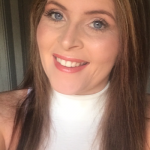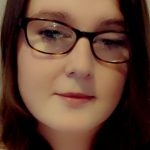Applied Humanities: In our own words
Last Updated: November 3rd 2020
Applied Humanities BA is an accelerated degree which takes St John Henry Newman’s vision for a broad, liberal education and reimagines it for the twenty-first century. As a community of creative researchers, we aim to be true generalists and reject the narrow specialisms which have alienated professional scholarship from the wider world. With a very small but dedicated teaching team, and 48 new student researchers, this degree programme has defied sector trends for arts and humanities recruitment at post-1992 institutions.
It’s unlike anything else offered by a UK university and it can be devilishly difficult to explain why it’s so special. So, we asked some of the new students to explain their reasons for choosing this degree.
Why did you decide to study at Newman?
 Sue Tyler: The first impression from the open evening I attended at Newman was beyond fantastic. Walking through the door to a very friendly happy and well organised environment put myself totally at ease. The lecturers were engaging passionate and energetic and it was infectious enthusiasm.
Sue Tyler: The first impression from the open evening I attended at Newman was beyond fantastic. Walking through the door to a very friendly happy and well organised environment put myself totally at ease. The lecturers were engaging passionate and energetic and it was infectious enthusiasm.
Joshua Shale: I first applied to Newman University to study to be a primary school teacher but was only eligible for the foundation route (due to not having any A-level qualifications). This was not a viable option for me and as an alternative I was told about Applied Humanities. I received a phone call from the lecturer and right away I felt like this was the course for me. I felt a sense of belonging immediately with that phone call because I felt like Newman University really wanted to have me on their course and I wasn’t just another student. This meant a lot to me and is perhaps the biggest reason why I chose Newman.
Nicky McPhee-Ball: I chose Newman partly because it’s close to home and moving away to study in these uncertain times didn’t particularly appeal, and because when I was looking at avenues I might like to pursue, courses that Newman offers made up half of my list.
Niamh Bird: Having friends who attended Newman a couple of years before me, I had heard plenty about all of the support they were offered throughout their degree. From the Student Support department to the extensive careers support, I knew that I would never feel alone and struggling. Therefore, I decided to make an application to Newman, and have not been disappointed.
What are the main advantages of studying an accelerated degree?
Krish Parker: This is an exciting option which combines great concepts whilst developing real-life job skills in just 2 years!
Laura Davidson: You learn at a quicker pace, broadening your mind while not getting bored. You get to gain lots of knowledge and reach your career goal in a much faster way.
Sue Tyler: My viewpoint is based on my personal circumstances – for me that’s a career change into teaching. I had decided to accept a place at Wolverhampton University when one of the Newman lecturers contacted me about Applied Humanities. It was brilliant – I could study for a degree in 2 years with less expense involved and get to my chosen career path at a faster pace.
 Niamh Bird: I had already taken a gap year and attended another university for a year, but that course didn’t work for me and so I decided to start a new course. I felt like I was quite behind my peers who were going into their third year, and I was starting again. Therefore, to hear about a 2-year degree was amazing. I could focus on my future career and working hard at what I love without feeling like I was wasting any more time. I feel like my life is in motion again as I work towards my goals.
Niamh Bird: I had already taken a gap year and attended another university for a year, but that course didn’t work for me and so I decided to start a new course. I felt like I was quite behind my peers who were going into their third year, and I was starting again. Therefore, to hear about a 2-year degree was amazing. I could focus on my future career and working hard at what I love without feeling like I was wasting any more time. I feel like my life is in motion again as I work towards my goals.
How have you found the first few weeks of studying?
Sue Tyler: Brilliant!!! Very interesting with definite changes of opinion and thought patterns. A happy relaxed and safe environment to discuss sometimes sensitive issues with fantastic outcomes and different viewpoints. The zoom calls are great, and I really look forward to the discussions and the different lecturers that attend with different outlooks and information.

Krish Parker: Despite the strange circumstances of 2020, the first few weeks of studying at Newman University have been inviting and friendly.
The course is very welcoming, and the main lecturers Charlotte and Emma have accommodated each of our needs by setting up alternative and additional zoom call sessions. As well as keeping us updated with emails of when a new topic is up for us to study online.
 Laura Davidson: Very interesting! I have learnt about lots of topics I wouldn’t have thought about and broadened my mind to a different way of thinking. It’s been very eye opening to listen to different people’s views and to understand where they are coming from and how differently they see things in the world compared to me.
Laura Davidson: Very interesting! I have learnt about lots of topics I wouldn’t have thought about and broadened my mind to a different way of thinking. It’s been very eye opening to listen to different people’s views and to understand where they are coming from and how differently they see things in the world compared to me.
Joshua Shale: My first weeks of studying have been very enjoyable. The support I have received from my lecturers with zoom calls and emails amongst other things has been phenomenal. I feel that the Applied Humanities course is tailored to who you are as a person as opposed to what grades you have to your name.
 Nicky McPhee-Ball: I’ve felt very positive about our first few weeks, there is definitely an amount of uncertainty and discomfort in not being able to get to know each other properly; a Zoom call is not the most conducive to making friends, but I think the content is interesting and I hope it will become even more so.
Nicky McPhee-Ball: I’ve felt very positive about our first few weeks, there is definitely an amount of uncertainty and discomfort in not being able to get to know each other properly; a Zoom call is not the most conducive to making friends, but I think the content is interesting and I hope it will become even more so.
Niamh Bird: After such a long time without studying due to Covid-19, I was eager to begin my studies again. I have been met with a lot of support from Charlotte and Emma, which has made it easier to get back into the swing of things. I don’t feel as overwhelmed as I did right at the beginning, and I am excited to look at the possibilities for my assessments. Already I have been introduced to ideas that have impacted on me and my future goals, and I am feeling very inspired to achieve those goals.
So what is Applied Humanities?
To adapt the words of St John Henry Newman again, ‘it is this and a great deal more, and demands a somewhat better head and hand than ours to describe it well.’ Thanks to all our wonderful contributors for making a much better job of it than we ever could.
If you’d like to know more about Applied Humanities, get involved, or contribute to one of our sessions, please contact Emma Folwell or Charlotte Lewandowski.
